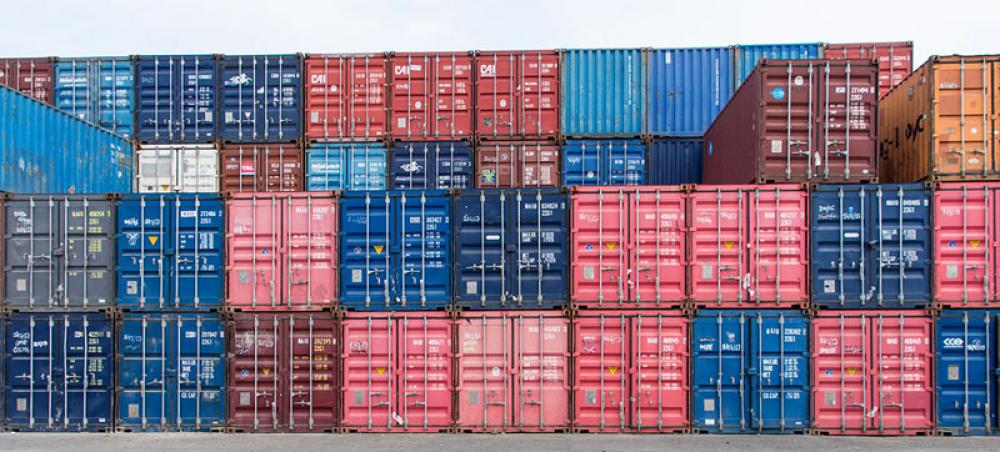Just Earth News | @justearthnews | 19 Mar 2021, 04:18 am Print
 COVID19 Economy
COVID19 Economy Image: UNCTAD/Jan Hoffmann
New York: The COVID-19 pandemic seriously impacted all economies around the world last year, with trillions of dollars of lost earnings, UN trade and development experts UNCTAD said on Thursday, before highlighting how several countries also showed unexpected resilience, too.
According to trade and development body UNCTAD, the global economy posted its sharpest annual drop in output since records began to be aggregated in the 1940s, “with no region spared”.
“Multilateralism has essentially lost its mojo”, said Richard Kozul-Wright, head of the Division on Globalization and Development Strategies at UNCTAD, in a year that saw an estimated 3.9 per cent drop in global output – 0.4 per cent better than the forecast in mid-2020 - that was largely owing to stronger performances in China and the United States.
‘Weak’ support for the poorest
Speaking to journalists in Geneva, the UN economist maintained that debt-relief initiatives for poorer countries expected by the G20 group of advanced economies had been “extremely weak”, at a time when developing countries feared losing much-needed foreign direct investment.
Efforts to organise a fair and equitable COVID-19 vaccine rollout had also showed “serious weaknesses in the global health architecture”, Mr. Kozul-Wright maintained, while the first year of the coronavirus crisis saw “destruction of income on an unprecedented scale, an estimated $5.8 trillion, and with already vulnerable parts of the population bearing the brunt”, according to UNCTAD’s Trade and Development report.
In concrete terms, the coronavirus crisis triggered an effective loss of 255 million full-time jobs worldwide, according to the International Labour Organization (ILO), cited by UNCTAD.
Second wave dashes revival
Although the global economic recovery began in the third quarter as countries started to lift restrictions, UNCTAD noted that a second wave of virus hit earlier than expected in the final quarter of 2020 which dampened the recovery, most notably in Western Europe.
Countering this downward pressure on growth were vaccine breakthroughs and improved management of lockdown measures, both of which offset COVID-19's overall economic impact, the UN report said.
Latin American resilience
Regionally, UNCTAD data indicates that East Asia and Latin America fared “a little better than expected” – likely shored up by Brazilian growth - but Europe, India and South Africa did worse.
“Positive surprises” were Brazil, Turkey and the United States, thanks to large relief measures that acted as a shock-absorber for recession, while rising commodity and asset prices spurred growth.
The rebound in raw materials prices also benefited “several” developing African economies, UNCTAD continued, while the region as a whole saw lower-than-expected pressure on public health systems from COVID-19, UNCTAD said.
Food insecurity concerns
The UN body cited concerns nonetheless that more volatility may be emerging, particularly in markets of some agricultural commodities, with a threat to food security in several countries
It also noted that losses in global growth ‘will persist as even the most optimistic projections for the bounce back of growth will not cover the shortfall of income for several years”.
For 2021, UNCTAD announced global growth of 4.7 per cent - 0.6 per cent better than its previous mid-2020 forecast.
But this “more optimistic scenario” depends on international support for three things, UNCTAD insisted: “improved vaccination and disease containment in advanced and middle-income countries, a speedy transition from economic relief policies to recovery-policies in the largest economies of the world; and no financial crash of global significance”.
- Coding at risk? Anthropic CEO Dario Amodei says human-centric roles may last longer
- Amazon’s mega office in Bengaluru is here. See all details
- Why is Nissan recalling 640000 vehicles? Check all details
- Microsoft appoints Asha Sharma as Gaming CEO. Who is she?
- Is your screen job about to vanish? Top AI expert warns that the shift has already begun





-1763561110.jpg)
